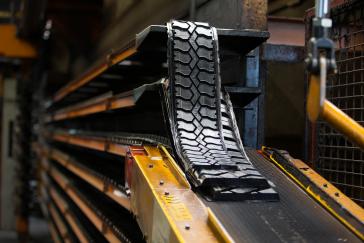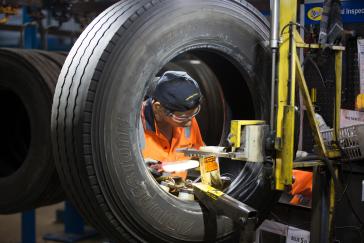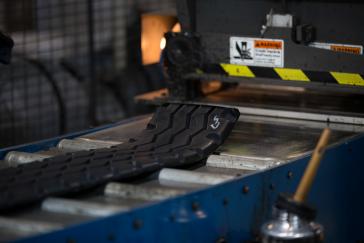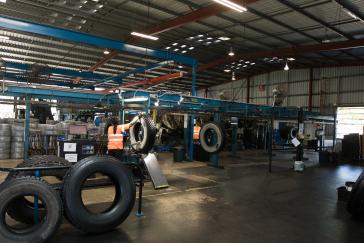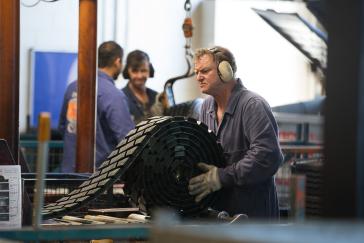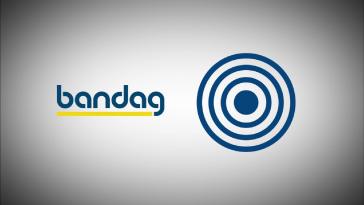- Bridgestone outlines the role Bandag retreads play in reducing emissions and aligning to the pillars of The Green Compact.
- Bandag retreads provide a sustainable solution to the increasing focus on environmental and social requirements within the trucking industry.
- Retreads support industry circular economy, waste reduction and carbon emission reduction aspirations
- Retreading for a Better World outlines the tangible benefits of Bandag retreads.
AUCKLAND, New Zealand (24 February 2023) — Bridgestone New Zealand has highlighted the role that Bandag plays towards a circular economy and sustainable future at the announcement of The Green Compact framework for decarbonising the road transport industry.
The launch of The Green Compact has reinforced why Bandag retreads are more relevant than ever, and how they play an essential part in Bridgestone's global and local strategy. In line with today's shifting landscape within the trucking and bus industries, environmental and social factors are playing an increasingly more prevalent role in the product and service choice that businesses make.
According to Bridgestone New Zealand Commercial Business Manager, Jeremy Mackintosh, Bandag
retreads are an impactful way that Bridgestone is supporting its customers' values towards a more sustainable future and support the objectives of The Green Compact.
"Environmental and social factors have always been a consideration for our customers, but we have seen it increasingly becoming top of mind in recent years. Now, our customers are turning to us to discuss how we can work together to support their business sustainability targets," Mr Mackintosh said.
"Our company is not just selling products to our customers, we are committed to working together on long-term solutions that contribute to not only economic, but also environmental and social performance indicators," he added.
The Bandag retread process exemplifies product circularity and a working circular economy within the tyre industry. The local manufacturing process re-captures the value of old truck tyre cases that would otherwise be recycled or become waste, and retreads them to make new, high quality Bandag products.
Retreading for a Better World
With a growing interest in the tangible benefits of retreads, Bridgestone and Bandag recently released its Retreading for a Better World product information, a snapshot of the environmental and economic benefits of the Bandag process on a local level. The information outlines how Bandag's Australian PCT manufacturing and retreading process reduces carbon emissions and conserves raw materials when compared to the production of a new tyre. A local manufacturing offering that is unmatched in Australia.
The Retreading for a Better World material highlights how the manufacture of a retread sees a 34 per cent reduction in carbon emissions compared to a new tyre – the equivalent of 73kg per unit. This reduction is then compounded with each time a tyre is retreaded, to a 51 per cent saving on the third time, or 110kg.
In line with the carbon emission reduction, the retreading process also sees a 46 per cent reduction of waste on the first retread, and nearly 70 per cent by the time the unit is retreaded a third time, with the process not only seeing cases reused, but also recycled material used in the manufacture of the tread compound.
Bandag's retread offering sees more than 6,000 tonnes of material remanufactured and re-used each year. In addition to case re-use, throughout the retread process, waste material is captured and reused in the manufacturing process or recycled into other products such as rubber flooring.
The Bandag retread process also sees 70 per cent less oil utilised in its production, as well as significantly less energy, water and natural resources.
The emphasis on Bandag as a sustainable solution for business is underpinned by the significant role Bandag plays in the realisation of Bridgestone's 2050 vision outlined in the global Mid-Long Term Business Strategy, and is a demonstration of several values of the recently launched Bridgestone E8 Commitment.
"Toward 2050, Bridgestone's vision is to continue to provide social value and customer value as a sustainable solutions company, and Bandag plays a significant role in being able to deliver this value," said Bridgestone Director of New Zealand Business, John Staples.
"Bridgestone places great importance on product circularity and investing into a circular economy. Bandag is an excellent example of how we are recapturing the value of the products that we produce and giving them a new life, not only reducing our company's impact on the environment, but also aligning with the ever-increasing social and environmental values of our customers.
"In line with our Bridgestone 3.0 global strategy, Bridgestone has ambitious goals of material circularity across all of our products, from truck and bus tyres right down to tyres for passenger vehicles. Through Bandag's preservation of natural resources, reduction in energy use and waste recycling, Bandag is a critical component to our sustainability goals," Mr Staples added.
Ongoing investment in sustainable practices
Bridgestone Australia & New Zealand continues to invest in the Bandag's infrastructure, both at the pre-cured tread factory in Wacol, near Brisbane, Queensland, and the three New Zealand retread factories in Auckland, Rotorua and Christchurch.
Locally, Bridgestone NZ utilises Meridian Energy's 100% Certified Renewable Energy product for its NZ operations, which sees the company purchase renewable energy certificates to verify that the amount of electricity used throughout the company's operations is matched on an annual basis with electricity produced from Meridian's certified hydro power stations and wind farms.
At the pre-cured tread factory in Australia, the investment in the Wacol site has seen a recent upgrade and expansion of the site's solar array system, adding an additional 140kW system to the existing capabilities, with a second phase of expansion planned in 2023.
The site has also seen an increase in water harvesting capabilities, expanding storage to 2 million litres enabling harvest and use of more than 5 million litres of rainwater per year.
"Our manufacturing processes leverage the on-site creation of renewable energy and harvesting of water to minimise reliance on town water. We will continue to invest in the Bandag business and remain committed to aligning with our customers' sustainability values, inline with the Bridgestone E8 Commitment and our transformation to a sustainable solutions company," Mr Staples said.
Bandag's waste reduction efforts also extend to logistics through the use of slip sheets for import of pre-cured tread to New Zealand, which has seen nearly 5,000 wooden pallets removed from the process contributing to further waste reduction.
Mr Staples says the Bandag process and the local efforts have a direct contribution to Bridgestone's global efforts towards carbon neutrality and a circular economy, highlighting how the company is already supporting The Green Compact framework.
"The efforts being undertaken by the Bridgestone Australia & New Zealand team, and the Bandag team, are in line with our global objective to reduce our impact on the environment and strongly align to the objectives outlined in The Green Compact Framework," Mr Staples said.
"Our commitment to a sustainable society not only benefits our business but creates shared value for our customers through offering sustainable solutions that are aligned with their own values," he added.
About the Bridgestone E8 commitment:
The Bridgestone E8 Commitment was launched last year to support the global environmental targets set in the company's Mid-Long Term Business Strategy - headlined by carbon neutrality and the use of 100 per cent sustainable materials by 2050. By 2030, Bridgestone is striving for a 50 per cent reduction in C02 emissions (scope 1 and 2) from 2011's benchmark, and the uptake of 40 per cent use of recycled and renewable resources.
Made up of eight values: Energy, Ecology, Efficiency, Extension, Economy, Emotion, Ease and Empowerment, the Bridgestone E8 Commitment is designed to create purpose and process for the company, partners and customers towards the development of a more sustainable society.
###
About Bridgestone New Zealand Ltd.


